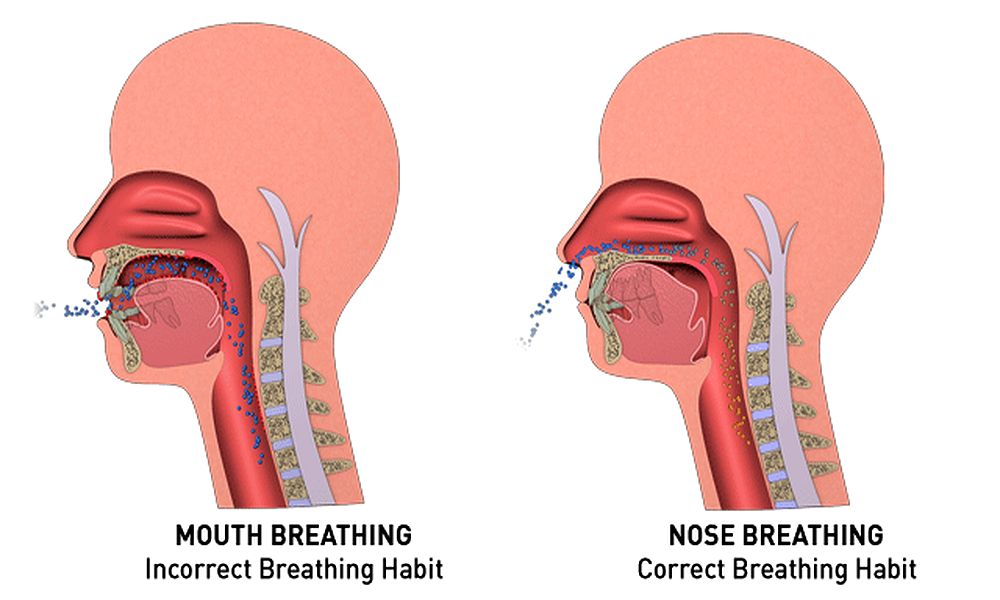

Understanding The Causes And Solutions For "Can't Breathe Through Nose"
Experiencing difficulty in nasal breathing can be frustrating and concerning for many individuals. The sensation of being unable to breathe through your nose can stem from various causes, ranging from allergies to anatomical issues. In this comprehensive guide, we will delve into the different factors that contribute to this condition, explore effective solutions, and provide insights into when to seek medical attention. Understanding why you might be facing this challenge is the first step towards finding relief and improving your quality of life.
In today's fast-paced world, many people overlook the importance of proper nasal breathing, often attributing it to seasonal allergies or a common cold. However, chronic difficulty in breathing through the nose can significantly impact daily activities, sleep quality, and overall health. This article aims to shed light on the underlying causes of this issue and offer practical advice for managing and overcoming it.
With the rise of respiratory conditions and environmental factors that contribute to nasal obstruction, knowing how to address the "can't breathe through nose" issue is crucial. Whether you're dealing with temporary blockages or persistent problems, this article provides expert insights into effective treatments and preventative measures. Let's embark on this journey towards better nasal health.
Table of Contents
- Understanding Nasal Breathing
- Common Causes of Nasal Blockage
- Symptoms Associated with Nasal Breathing Difficulties
- Diagnosis and Evaluation
- Treatment Options
- Home Remedies and Preventative Measures
- When to See a Doctor
- Conclusion
Understanding Nasal Breathing
Nasal breathing is a vital process that allows air to enter the lungs through the nose. This method of breathing is essential for filtering and humidifying the air, which helps protect the respiratory system from irritants and pathogens. The nose plays a crucial role in regulating airflow and maintaining optimal oxygen levels in the body.
When we breathe through the nose, the turbinates—structures within the nasal cavity—help to warm, humidify, and filter the air. Proper nasal breathing contributes to better oxygenation, improved lung function, and overall well-being. However, when these pathways are obstructed, it can lead to a range of issues that affect both physical health and quality of life.
Common Causes of Nasal Blockage
There are several common causes of nasal blockage that can lead to the sensation of "can't breathe through nose." Understanding these causes is essential for finding appropriate solutions.
1. Allergies
- Seasonal allergies (hay fever)
- Dust mites
- Pollen
- Pet dander
2. Nasal Infections
- Sinusitis
- Common cold
- Flu
3. Anatomical Issues
- Deviated septum
- Nasal polyps
- Enlarged turbinates
4. Environmental Factors
- Air pollution
- Smoke exposure
- Dry air
Identifying the specific cause of nasal blockage is vital for determining the most effective course of action.
Symptoms Associated with Nasal Breathing Difficulties
Individuals experiencing difficulty breathing through their nose may encounter a variety of symptoms that can vary in severity. Some common symptoms include:
- Facial pain or pressure
- Headaches
- Nasal congestion
- Reduced sense of smell
- Frequent sinus infections
If you are experiencing any of these symptoms, it is essential to assess the underlying cause to seek appropriate treatment.
Diagnosis and Evaluation
To effectively address the issue of nasal blockage, a proper diagnosis is crucial. Healthcare providers may conduct several evaluations, including:
- Physical examination of the nasal passages
- Allergy testing
- Imaging tests (CT scans) for structural abnormalities
Through these evaluations, healthcare professionals can determine the most appropriate treatment options for your specific condition.
Treatment Options
There are various treatment options available for individuals struggling with nasal breathing difficulties. These treatments may include:
1. Medications
- Antihistamines for allergies
- Decongestants for nasal congestion
- Prescription nasal sprays
2. Surgical Interventions
- Septoplasty for deviated septum
- Endoscopic sinus surgery for chronic sinusitis
Choosing the right treatment depends on the underlying cause and severity of the condition.
Home Remedies and Preventative Measures
In addition to medical treatments, there are several home remedies and preventative measures that can help alleviate nasal blockage:
- Using a humidifier to add moisture to the air
- Saline nasal sprays to moisturize nasal passages
- Avoiding known allergens and irritants
- Practicing good hygiene to prevent infections
Incorporating these practices into your routine can help improve nasal health and reduce the likelihood of future issues.
When to See a Doctor
While many cases of nasal blockage can be managed at home or with over-the-counter treatments, it is essential to seek medical attention if:
- You experience severe facial pain or swelling
- Your symptoms persist despite treatment
- You have a high fever or signs of infection
Prompt medical evaluation can help prevent complications and ensure the best possible care for your condition.
Conclusion
In summary, experiencing difficulty breathing through your nose can significantly impact your daily life. Understanding the underlying causes, recognizing symptoms, and exploring treatment options are crucial steps in finding relief. If you are facing this challenge, consider implementing some of the home remedies discussed and consult with a healthcare provider for a personalized treatment plan.
We invite you to share your thoughts and experiences in the comments below. If you found this article helpful, please share it with others who may benefit from it, and explore more of our articles for additional insights on health and wellness.
Thank you for reading, and we hope to see you back on our site for more informative content!
Best Economical Laptop For Students: Top Picks For 2023
Understanding RBF Meaning: What You Need To Know
Unlocking The Benefits Of Alcove Soaking Tubs: A Complete Guide


